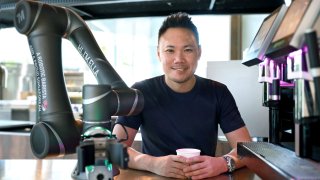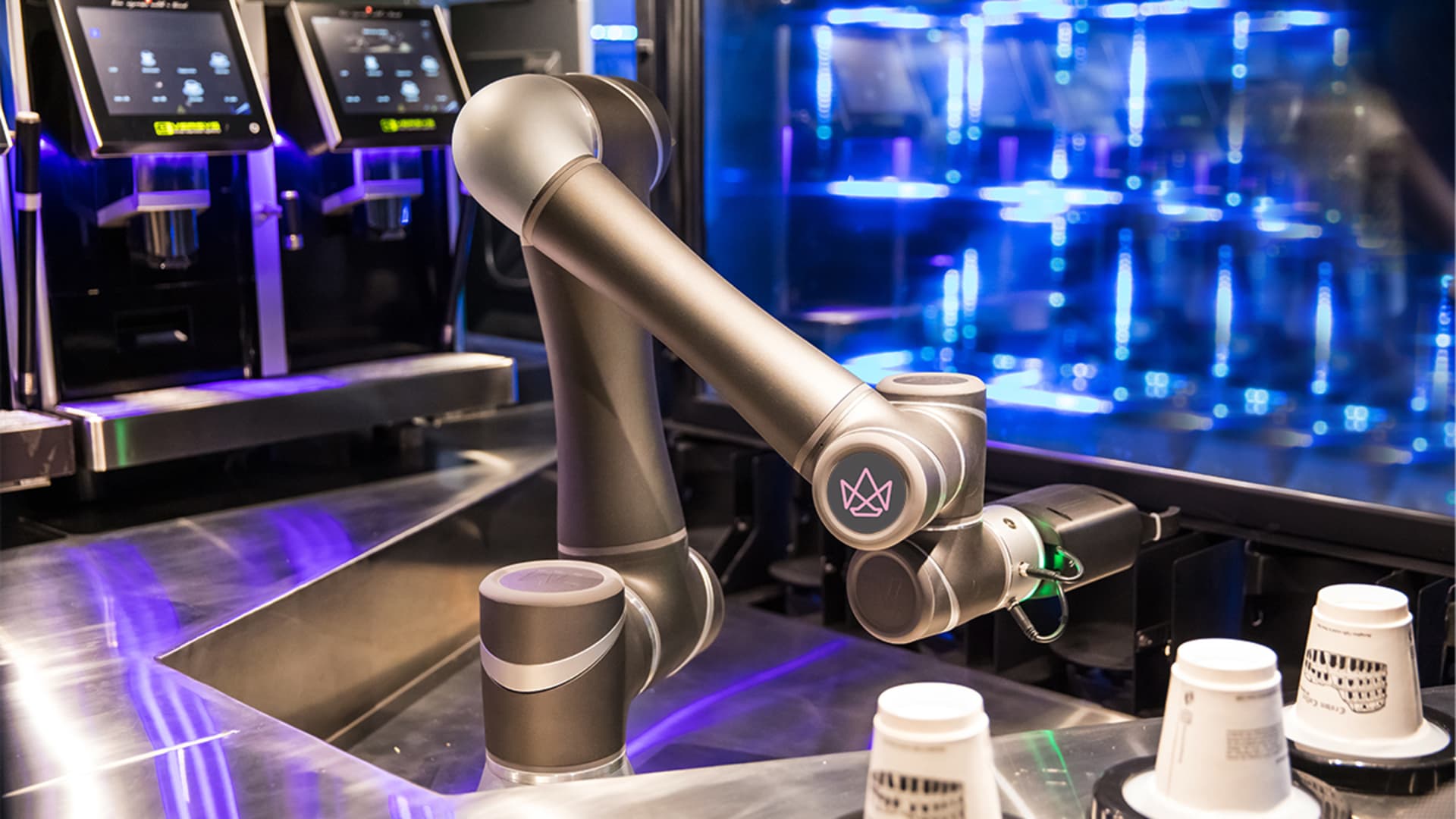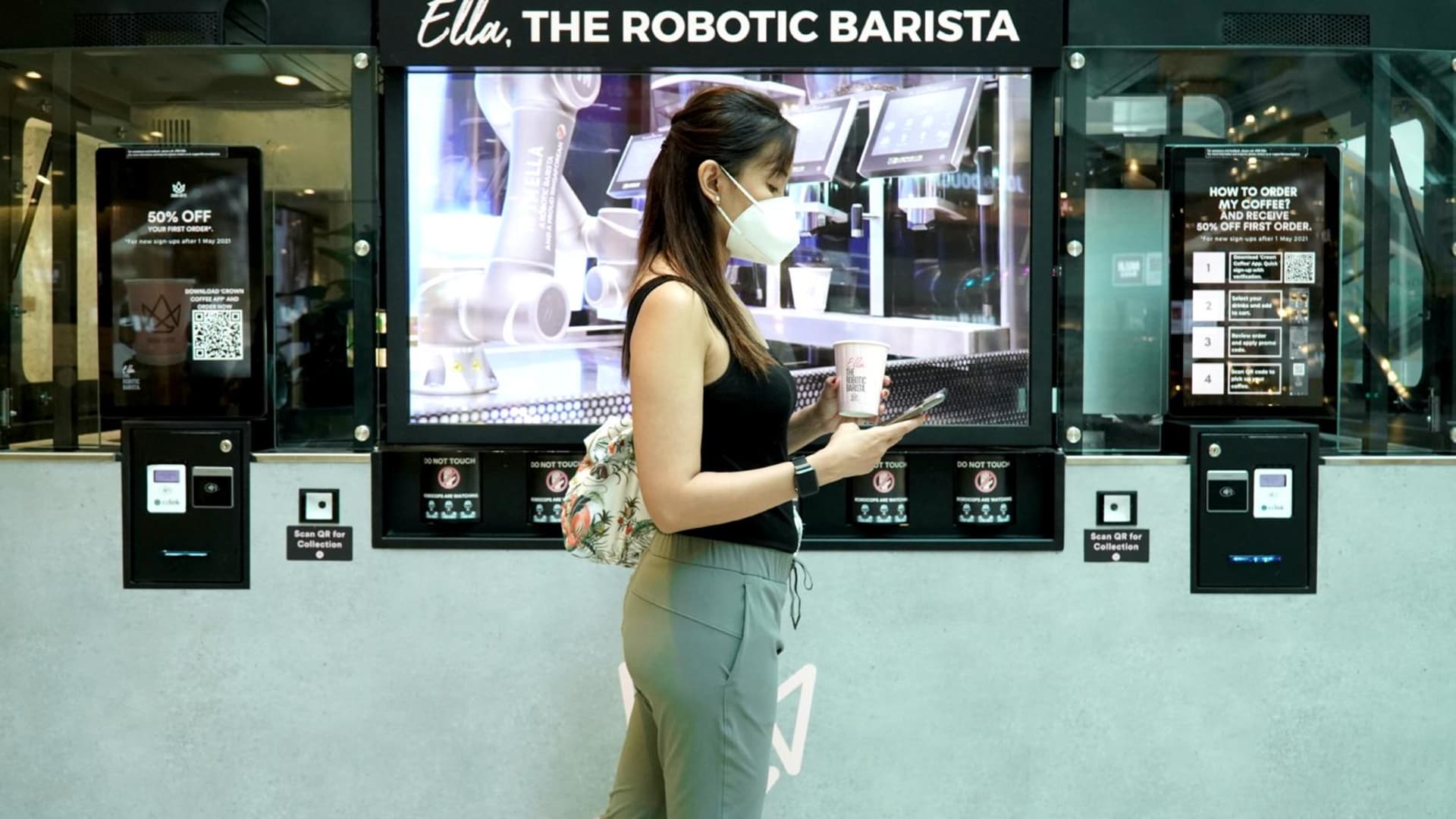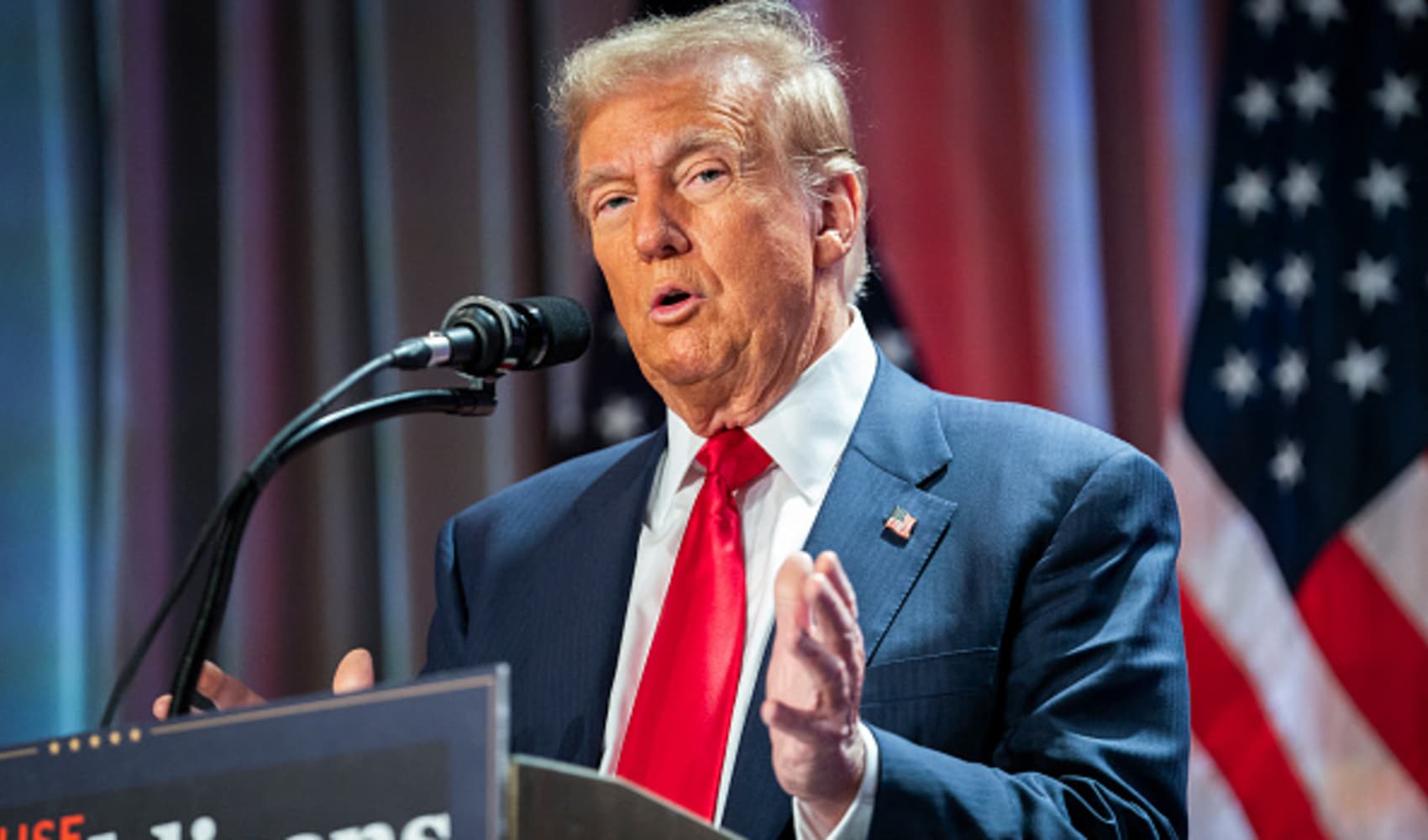
Long black. Flat white. Iced latte. However you take your coffee, Ella — Singapore's first fully autonomous coffee barista — has got you covered.
Ella is the multimillion-dollar brainchild of 41-year-old Keith Tan, a former wealth manager who gave up the daily grind in 2015 to launch his own chain of coffee shops.
"I was 35 years old, in finance, and I thought: 'It's my chance.' I've got to do something, build something for myself," Tan told CNBC Make It.
But it wasn't long after he got the coffee joint off the ground that he began to discover manpower issues within the food and beverage industry.
Get top local stories in Connecticut delivered to you every morning. Sign up for NBC Connecticut's News Headlines newsletter.
"We had four shops that were facing labor crunch, and I thought, 'I've just invested in this company, it's going to grow, it's going to grow more than that!' So, then I decided it's time to really look into technology," said Tan, who is the founder and CEO of Crown Digital.
Re-energizing food and beverage
With that, the idea for Crown Digital was born: an internet of things start-up aiming to address the difficulties within the F&B sector.
Money Report
Ella is the company's debut product — an automated robot designed to replicate the work of a human coffee server.
Created in 2018 after years of experimentation, the robotic barista features an autonomous arm, produced by robotics company Techman Robot, which sits inside a five square meter, transparent kiosk.

The machine operates around the clock and can serve up to 200 cups of coffee per hour — four times as many as a typical human barista.
Its ingredients — fresh milk and beans — only need to be topped up after 360 servings, which is done by delivery drivers monitoring Ella via an app. Crown Digital's in-house command center allows Ella to detect and resolve spillages or machine faults remotely.
Tan said the technology is designed specifically for high density, grab-and-go environments like airports, transport hubs and offices, where speed is paramount.
"There's opportunities where you just want speed, consistency and ease of ordering, and that's where robotics can really come in," said Tan.
Robots on the rise
That efficiency means cost savings can be passed on to consumers too. For instance, a latte by Ella costs about $3, while a typical barista coffee in Singapore costs around $4.50.
But Ella isn't the only coffee robot around.
In 2015, Swiss engineering firm ABB unveiled YuMi, a versatile robot capable of executing various tasks, including signing its name, solving a Rubik's Cube and even accompanying Italian tenor Andrea Bocelli to conduct an orchestra.
More robot cafes have sprung up in recent times, such as Cafe X in San Francisco and B;eat at South Korea's Incheon Airport.
"As we look to the future, we're expecting tremendous growth," Chris Holmes, managing director at IDC Insights Asia Pacific, said of the automation and robotics industry.
In the next two years alone, the market intelligence company said it expects half of all food and beverage and retail outlets to employ some form of robotics.
"We'll certainly see some front of house," he said. "But we'll also see a lot of robots actually in the warehousing, the transportation, the distribution."
Accelerated by Covid
Covid has only boosted that demand.
As more people became conscious of hygiene during the pandemic, Tan secured Ella's first permanent retail space in one of Singapore's central shopping malls in 2020.

Crown Digital has since signed deals to roll out its robot baristas at selected stops on the East Japan Railway Company's network of 1,657 stations, and at 30 subway stations in Singapore operated by SMRT.
That will make Ella's grab-and-go coffee available to a combined 18 million daily commuters.
"We are reimagining how coffee can be served to consumers through digital touch points," said Tan.
The two transport operators have also invested in Crown Digital, bringing its total funding to $3.1 million and valuing it at over $35 million.
Impact of automation
Not everyone is enthusiastic about the rise of the robots, however.
"There's a lot of concerns out there in terms of robots taking people's jobs," said IDC's Holmes, adding that both physical and software robots are altering the jobs landscape.
The World Economic Forum estimates that by 2025, automation will displace some 85 million jobs. However, it adds that the robot revolution will create a further 97 million jobs over the same period.
Tan argues that robots like Ella are simply making way for more skilled human jobs.
"Eventually, automation will come in for the bread-and-butter, and then you have the human experience where you can pay them better, retain them, and build that human experience," he said.
For him, his robot barista is barely scratching the surface, and he's got plans for more robots to help with our everyday lives.
"We're starting off with coffee, but we're not ending with that," he said. "Ella's going to go on to do food, for example, delivery. There are going to be many different verticals where Ella could be deployed."
Don't miss: Why Jeff Bezos is backing this millennial founder's Indonesian start-up
Like this story? Subscribe to CNBC Make It on YouTube!






